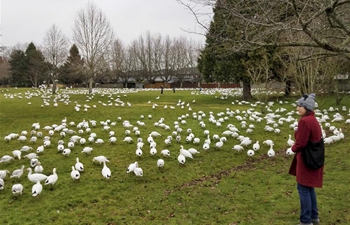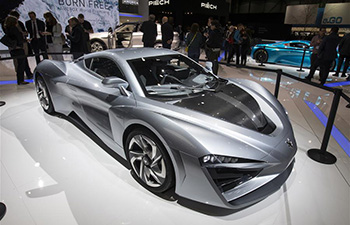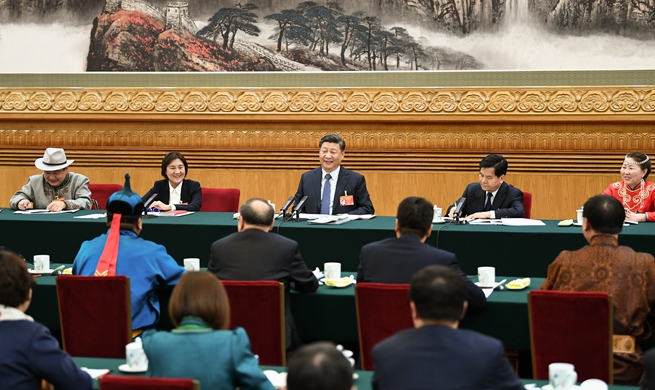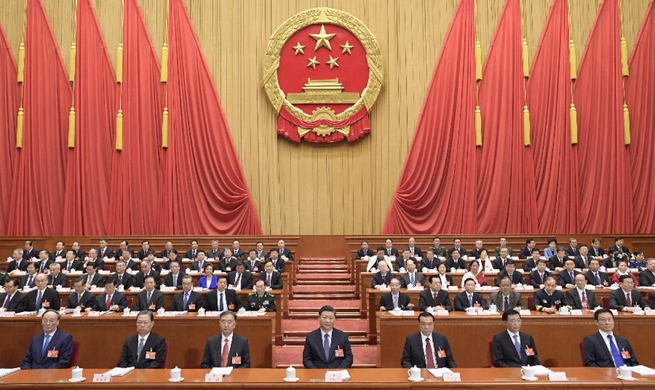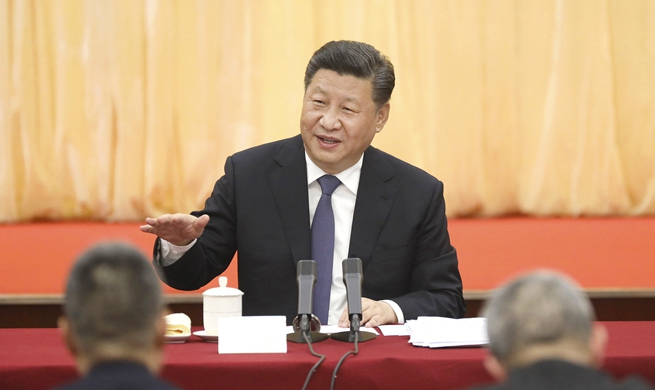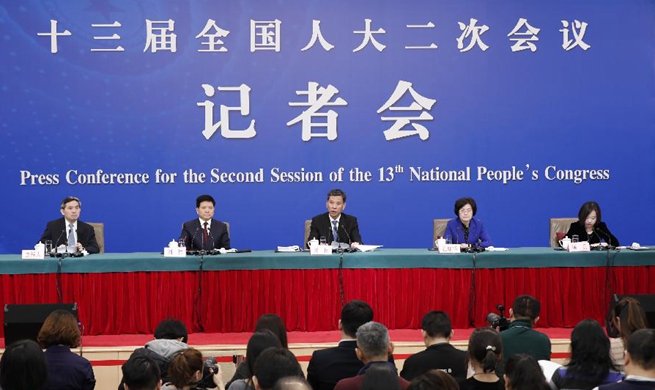by Xinhua writer Hu Tao
SHENZHEN, March 7 (Xinhua) -- No one has a crystal ball to see the future. But as chief technology officer of leading aerospace company Airbus, Grazia Vittadini shoulders an ambitious mission to "shape the future sky."
From engineering to senior executive positions, Vittadini "sees the value of diversity as a competitive advantage, just as talent, knowledge and passion has no gender."
"Diversity injects values into the aerospace industry. Airbus has very high ambitions, and China is of critical importance to us in the past, at present and in the future," Vittadini told Xinhua during her China visit to inaugurate the Airbus China Innovation Centre (ACIC).
PERFECT MATCH IN INNOVATION
The female CTO of Airbus was quickly attracted by "the unique dynamism and the ecosystem" even on her first trip in Shenzhen, a pioneering city of China's reform and opening up in Guangdong Province.
"Very young motivated well-prepared people, and very high eco-friendly consciousness in the city," Vittadini said.
She was not only amazed by the renowned "Shenzhen speed," but also by seeing "only electric buses driving on the roads and many electrical taxis around the city."
To her, Shenzhen and Airbus was a "perfect match."
"As we make efforts to stay ahead in innovation and grow with an environmental consciousness. There are major factors which matches very well with the spirit of the city," she said.
She came China to witness the inauguration of the Airbus China Innovation Centre as a major step to quickly mature the promising and high-value technologies for its future product portfolio.
The high-value technologies, such as electrification, connectivity, autonomy and digital manufacturing, are also missions of the centre, which is Airbus' first innovation centre in Asia and second worldwide after A3 in Silicon Valley.
"Today's innovation need partnerships," she said.
Taking "the most exciting technology" of electric and hybrid-electric propulsion for example. Airbus is heavily investing in developing the electrification technologies, and "partnering with the best makes it a reality".
The centre will develop a battery testing lab to fast-track the assessment of new battery-tech with Chinese partners. Shenzhen has become a world leading innovation hotspot in this field.
"Airbus wants to reinforce relationships with Chinese companies thanks to a local presence," she said. "It is a way to harness and leverage our exclusive strength," Vittadini said.
CHINA, INFINITE OPPORTUNITIES
To Vittadini, Airbus profits from good relationships with Chinese airlines and the industry side, which it will continue fostering in the future. And the importance of China to its future is beyond the market.
"The Chinese market continues being an incredible potential market for us," she said. "China is heavily investing in key areas such as robotics, new materials and artificial intelligence. These are all areas that are complementary to Airbus' key focus areas."
To date, more than 20 percent of Airbus's commercial aircraft go to the Chinese market. By the end of 2018, there were around 1,700 Airbus airplanes serving the Chinese market.
Ever since Airbus took its airplanes into the Chinese market in the mid-1980s, it has engaged in industrial cooperation in China. Now, its local partners have extended from China's aviation giant to innovation-oriented start-ups.
The ACIC and Royole Corporation in Shenzhen will jointly "inject" flexible electronic technologies into aircraft development. Flexible display-tech, such as "bendable screens," are expected create a more digitalized and personalized flight experience for passengers.
"We made innovation efforts to shape the future sky, aiming at speed, agility and high performance. With all efforts and innovative partnerships, our objective remains to plant deep roots in China," Vittadini said.
DIVERSITY ADDS VALUE
The aerospace industry has been long considered "a kingdom dominated by men," but the industry has embraced a female CTO. Airbus in 2018 appointed Italian-born Vittadini as their new CTO.
Aeroplano, aeroplane in Italian, was one of the first words she spoke as a toddler. And she built her first aircraft with balsa wood as a child.
Starting at Airbus 2002, she was as a stress and design engineer, and considers herself "an Airbus kid" as her childhood dream has been closely associated with flying.
In the Airbus engineering center in Beijing, there are almost the same number of female engineer professionals as male engineers.
Today, Airbus has staff from 130 nationalities across more than 100 sites worldwide. With the inauguration of the ACIC, more young Chinese will play their roles.
Airbus started with a bunch of visionary engineers in Europe by tackling a mission of making a wide-body airplane to cross the ocean with only two engines. "It was a mission impossible, but we developed the A300 to make it true".
"As Airbus CTO, I want to keep the pioneering spirit with innovation in our DNA. We value China's innovation potential, and we will surely be faster by leveraging diversified talents in China," she said.





